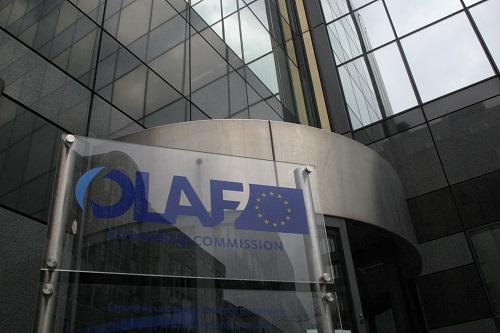
PRESS RELEASE No 11/2023
PDF version
National authorities from the EU and beyond, as well as non-governmental organisations and industry representatives, gathered at the headquarters of the European Anti-Fraud Office (OLAF) in Brussels on 21-22 June to exchange intelligence and coordinate action on the enforcement of trade sanctions against Russia and Belarus.
Following Russia's invasion of Ukraine, the European Union adopted several sanction packages that include import and export bans on a number of goods. Since last year, OLAF has been monitoring trade flows and performing analytical work to detect possible fraudulent circumvention of import/export sanctions, identify suspicious operators and map routes possibly used to try to evade trade restrictions.
Unusual movements of goods or other suspicious behaviour such as price anomalies can be an indication that the goods traded to or from a third country have in fact their final destination or origin in Russia or Belarus. OLAF has been promptly relaying any suspicious situations to national authorities, who have the power to enforce the sanctions and stop operators that try to circumvent them.
The joint sanctions enforcement meeting organised and hosted by OLAF focused in particular on key goods that can no longer be exported to Russia and Belarus. Alongside OLAF and the national customs authorities of the EU’s Member States, participants included national authorities from the U.S., Canada, the UK as well as non-governmental organisations and industry representatives. OLAF is also cooperating closely with the Ukrainian authorities on the topic.
The meeting served to exchange intelligence and strategies to support enforcement of the sanctions. In operational sessions that were limited to enforcement authorities, OLAF and its fellow investigators and analysts from the national authorities shared intelligence, case studies and investigative approaches in view of possible joint action.
OLAF Director-General Ville Itälä explained: "OLAF’s aim is to bring together the different authorities, actors and partners that have the power to enforce the sanctions and the information that can help us detect and investigate circumvention attempts. Strategic partner countries from around the world also participated in the meeting, as the efforts have an international dimension.
OLAF will continue to play its part by providing investigative intelligence and by acting as a bridge between the various national authorities. As an investigative office with a range of daily work that includes the fight against smuggling and customs fraud, we have extensive experience in analysing trade flows and data to detect suspicious operators and dodgy movements of goods.
We are now applying this expertise to help ensure that sanctions against Russia and Belarus are properly enforced. It is part of OLAF’s contribution to the security of the EU and to support Ukraine."
In order to protect ongoing and future operations, OLAF is not in a position to provide further information at this stage.
OLAF mission, mandate and competences:
OLAF’s mission is to detect, investigate and stop fraud with EU funds.
OLAF fulfils its mission by:
• carrying out independent investigations into fraud and corruption involving EU funds, so as to ensure that all EU taxpayers’ money reaches projects that can create jobs and growth in Europe;
• contributing to strengthening citizens’ trust in the EU Institutions by investigating serious misconduct by EU staff and members of the EU Institutions;
• developing a sound EU anti-fraud policy.
In its independent investigative function, OLAF can investigate matters relating to fraud, corruption and other offences affecting the EU financial interests concerning:
• all EU expenditure: the main spending categories are Structural Funds, agricultural policy and rural development funds, direct expenditure and external aid;
• some areas of EU revenue, mainly customs duties;
• suspicions of serious misconduct by EU staff and members of the EU institutions.
Once OLAF has completed its investigation, it is for the competent EU and national authorities to examine and decide on the follow-up of OLAF’s recommendations. All persons concerned are presumed to be innocent until proven guilty in a competent national or EU court of law.
For further details:
Kirill GELMI
Spokesperson
European Anti-Fraud Office (OLAF)
Phone: +32(0)2 29-88146
Email: olaf-media ec [dot] europa [dot] eu (olaf-media[at]ec[dot]europa[dot]eu)
ec [dot] europa [dot] eu (olaf-media[at]ec[dot]europa[dot]eu)
https://anti-fraud.ec.europa.eu
Twitter: @EUAntiFraud
Theresa ZAHRA
Deputy Spokesperson
European Anti-Fraud Office (OLAF)
Phone: +32 (0)2 29-57270
Email: olaf-media ec [dot] europa [dot] eu (olaf-media[at]ec[dot]europa[dot]eu)
ec [dot] europa [dot] eu (olaf-media[at]ec[dot]europa[dot]eu)
https://anti-fraud.ec.europa.eu
Twitter: @EUAntiFraud
Details
- Publication date
- 22 June 2023
- Author
- European Anti-Fraud Office
- News type
- OLAF press release